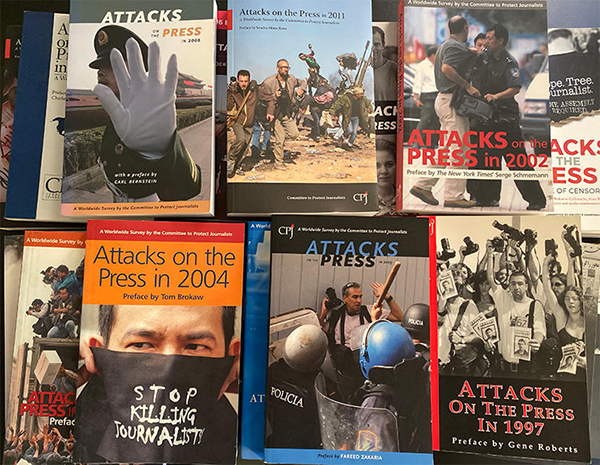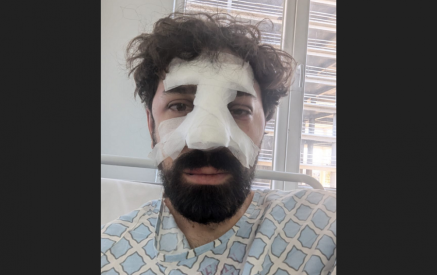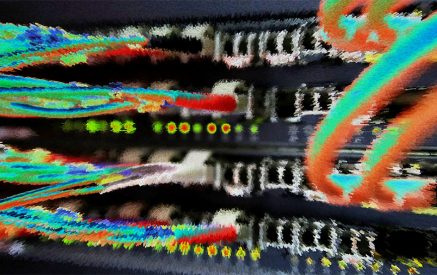Covers of CPJ’s ‘Attacks on the Press’ books. Starting in 1987, the annual publication acted as a database of press freedom violations. (CPJ/Mustafa Hameed)
Because of an article published in his weekly newspaper Al-Sharq, Mohammed al-Herd, then 34 years old, was charged and convicted for extolling terrorist acts, CPJ reported at the time. The article – which was actually a reprint from another publication – was penned by an Islamist activist and discussed alleged ties between the Islamist movement in Morocco and the country’s intelligence services, which it criticized for doing the “dirty work” of the CIA.
In the years that closely followed the September 11, 2001, attacks on the United States, governments around the world passed a raft of anti-terror laws, then proceeded to exploit those laws to silence critical journalists covering sensitive issues such as insurgencies, political opposition parties, and ethnic minorities. (CPJ published an analysis by Monica Campbell in the 2012 edition of our book, Attacks on the Press.)
A newly updated database on CPJ.org visualizes this trend – and how it combines and contrasts with other trends in decades of research on journalists who have been imprisoned or killed or who have gone missing because of their work since 1992.

























































